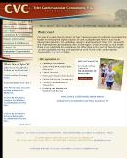Life expectancy can be reduced by up to 8 years by obesity, which can also cause adults to lose as much as 19 years of healthy life if it leads to type 2 diabetes and cardiovascular disease. A study published in The Lancet Diabetes & Endocrinology examines the issue.
The researchers behind the study analyzed data from the US National Health and Nutrition Examination Survey (NHANES), creating a disease-simulation model to estimate the risk of adults of different body weightdeveloping diabetes and cardiovascular disease.
From this, the researchers then calculated the extent to which overweight and obesity may contribute to both years of life lost and years of healthy life lost in American adults aged between 20 and 79 years old, in comparison to people of normal weight.
They found that people who were overweight (BMI 25-30 kg/m2) were estimated to lose up to 3 years of life, depending on age and gender. Individuals classed as obese (BMI 30-35 kg/m2) were calculated to lose up to 6 years, and people classed as very obese (BMI 35 kg/m2 or more) could lose up to 8 years of life.
Read more:
http://www.medicalnewstoday.com/articles/286518.php





